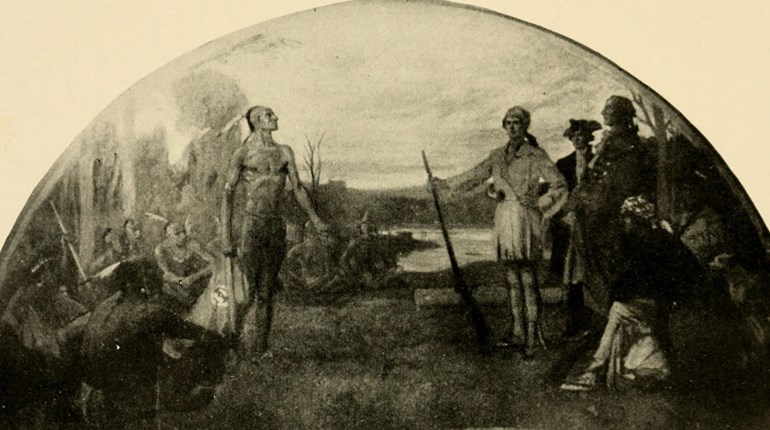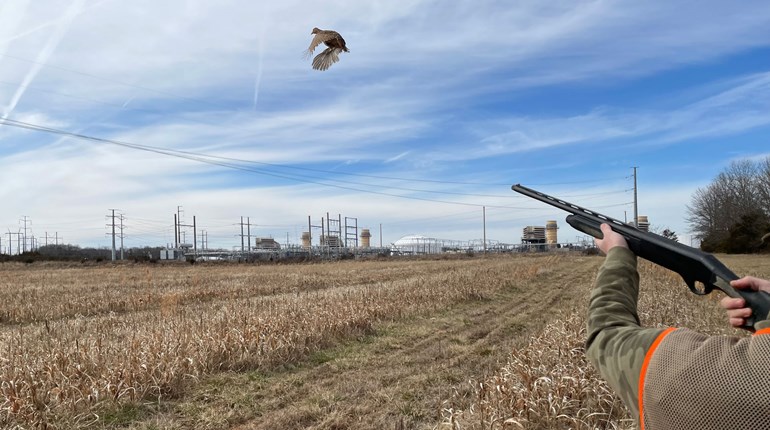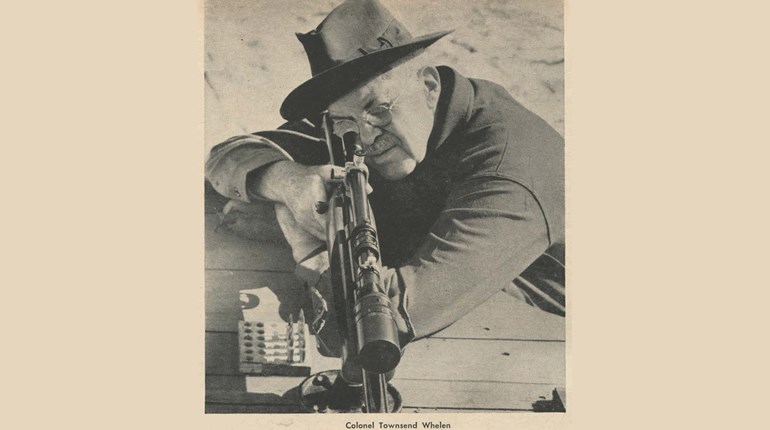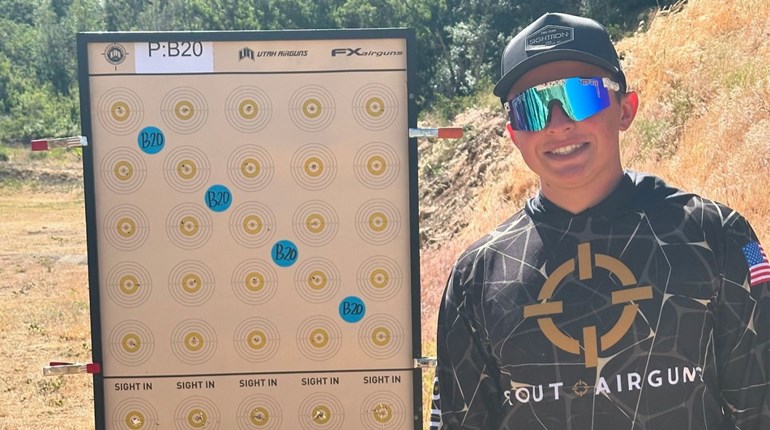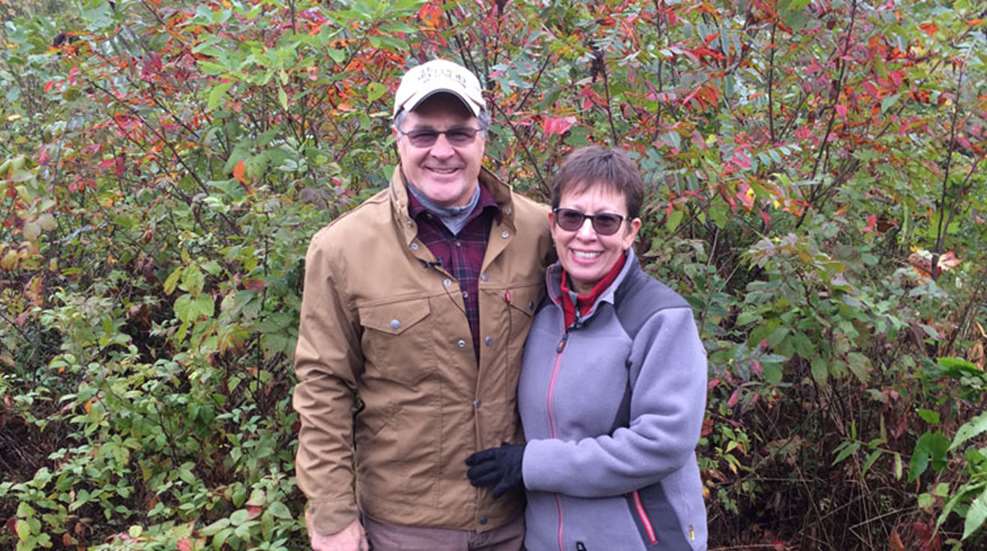
For more than 30 years, the husband-and-wife team of Randy and Koral Clum of Dover, Ohio, have been certified professional foresters, having worked for both a state natural resources agency—the Ohio DNR—and also in the private forestry industry. Today, they own and run their own business, Clum Forestry Consultants (www.clumforestry.com), managing woodlands for private landowners in the Buckeye State. If you are thinking about a possible forestry career, or maybe have never even considered one, there is no better duo to ask for advice on how to begin than the Clums.
How old were you when you first became interested in forestry as a possible career?
“As a kid, I always enjoyed being outdoors and visiting my grandparents’ farm in northwest Ohio,” said Randy. “Then, at age 12, my family took a month-long vacation through the American West, and seeing the grandeur of that country solidified the fact that one day I wanted to work outdoors.”
For Koral, who grew up in Iowa, a state known more for growing corn than trees, a high-school friend of hers saw the outdoor potential in her before she did. “My friend came up to me in study hall one day and said that she had just talked to a guidance counselor who mentioned an upcoming summer forestry camp in Wisconsin. She said that kind of thing wasn’t for her, but she thought I would enjoy it. So I attended the camp, loved it, and never changed my mind about a career after that.”
How did you prepare for your forestry careers and how did they turn out?
The Clums both hold four-year Bachelor of Science degrees in forestry, hers from Iowa State University and his from Ohio State University. Following graduation, they both expected to work in the West, but that is not how their careers evolved.
“After college, I accepted a job at Shawnee State Forest in southern Ohio,” said Koral. “I was the first female forester hired in the state in such a position, doing timber management and fire control. Randy was also working for the Ohio Division of Forestry at that time, but in a different part of the state. We eventually met, began dating, and married a year later.”
Randy transferred to Shawnee State Forest, and after working together there for four years the pair transferred to east-central Ohio to become service foresters, advising private landowners about woodland management. “We both have enjoyed practicing forestry in Ohio because the eastern U.S. is so much more diverse in tree species than the West or South,” said Randy.
Randy left his job with the Ohio Division of Forestry in 1997 to begin Clum Forestry Consultants. “As with any new business venture, there is always a certain amount of anxiety as to whether or not you will succeed,” he admits. “But looking back on it now, I needn’t have worried. The first day I was open for business the phone started ringing at 8:00 a.m. and it hasn’t stopped since. Three years later Koral saw how well the business was doing and how much fun I was having, so she left state forestry work and joined me.”
What do you enjoy most about being a forester?
“I like the challenge of educating people, mainly rural landowners, and experiencing the joy of working with the forest and watching how resilient it is,” said Randy. “For me, that’s very rewarding and fulfilling. I like seeing how adaptive and responsive a forest is to management, and how that in turn improves not only the productivity of woodlands but also wildlife habitat, and as a result the abundance of wildlife.”
Koral agrees, and added that she feels blessed to have worked in an outdoors career she truly loves. “Sometimes we look at each other and just have to laugh that we actually get paid to do this,” she said. “Also, no two days are exactly alike. There is so much variety in nature that we are constantly learning, experiencing new and unique things in the woods.”
What do you like least about the job of a professional forester?
“Sometimes Koral and I are micromanaged by the people who hire us, thinking they know more about what we should be doing than we do,” said Randy. “And at times, the people with the most money are the people who are also the most difficult to work with and for.”
Koral mentioned the routine paperwork and phone calls involved with running any type of business, what the Clums term “rainy-day office work.”
“Also frustrating are landowners who want a forest-management plan in name only,” she said. “In other words, some landowners have no intention of actually doing the work on their property we suggest. Rather, they just want to meet the minimum requirement of having a written plan so that they can then receive an annual tax break on their woodland acres.”
Who employs professional foresters?
“Every state DNR hires foresters, as does the federal U.S. Forest Service, Bureau of Land Management, and Natural Resources Conservation Service,” said Randy. “And there are many more specialty forestry jobs available than most people realize. For instance, urban foresters work in cities, towns and metroparks to keep trees healthy and growing in those locations. Private timber companies, on the other hand, hire procurement foresters who buy logs for sawmills.”
When planning a forestry career, Koral said to keep in mind that some entry-level forestry jobs don’t necessarily require a four-year college degree. “Forestry technician jobs are open to those with two-year associate degrees,” she said. “And although the forestry profession has been dominated for years by men, more and more young women are joining the ranks of professional foresters all the time.”
Is there anything else you’d like to add?
In concluding our interview, the Clums both stressed the importance of possessing good people skills as a forester—the ability to communicate. “If you are a young person considering a forestry job because you think you can just disappear into the woods each day and not have to deal with people, well, that’s not how it works,” said Randy. “Because if you can’t effectively communicate, nothing gets done.”
If you happen to be that young person considering a future forestry job, the Clums highly recommend getting started now by attending a week-long summer camp with a forestry emphasis to begin learning about the profession.
“Here in our state, the annual forestry summer camp sponsored by the Ohio Forestry Association is known as Camp Canopy (www.campcanopy.com), scheduled this year for June 9-14,” said Koral. “It’s open to high-school students not only from Ohio but across the country, and some scholarships are available. Who knows, such an experience just might change your life…it changed mine.”
Note: As well as advising others in woodland management, Randy and Koral Clum also own and manage their own 152-acre tree farm in Harrison County, Ohio. As a result of their 25 years of work on that property, in 2018 they were selected by the American Tree Farm System as its National Tree Farmers of the Year.














